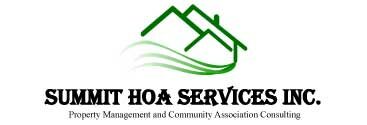Starting with Senate Bill 100 in 2005, and virtually every year since, the state legislature significantly amended the Colorado Common Interest Ownership Act (CCIOA) with the intent to ensure transparency and accountability within association governance. One of the earlier provisions includes some required disclosures, within 90 days of either:
- The end of the fiscal year
- The release of Declarant control to the HOA
- A change in material status of the HOA
To satisfy compliance in a more practical and consistent way, your association should make available to its owners, within each 90 day period, at least the following:
- The recorded full name of the association, its phone number, physical and mailing address.
- The name and contact details of the designated agent and management company (if any), including the phone number, physical address and office hours.
- Articles of Incorporation, any amendments, and most current certificate of corporate standing.
- Declaration (of CC&R’s), and any amendments, noting the initial date of recording and reception number (or book and page).
- Bylaws and any amendments.
- Current Rules, Regulations and Policies, and any amendments.
- Current Insurance summaries or declaration pages, noting Agent’s name and contact.
- Any separate Responsible Governance policies.
- Fiscal year start date.
- Current operating budget and reserve plan – preferably approved and ratified.
- A list, by unit type, of all regular and special assessments.
- Prior year’s Profit and Loss statement (compared to budget), Balance Sheet, and any other current financial reports produced specifically for the Association.
- Copies of results of any financial review or audit conducted for previous year.
- All prior year’s minutes of owner and Board meetings, except those from Executive Sessions, including referenced attachments, agendas, and meeting notices or waivers of such.
Your HOA may disseminate this information either on the internet, with notice of such sent by regular first-class mail or e-mail (note – must have ALL email addresses to be effective), by maintenance of a literature table or binder (such as “minute book”) at the principal place of business, or by regular mail (according to the Declarations) or personal delivery.
Consistent and frequent communication is essential for effective leadership and to promote harmony within the community.
